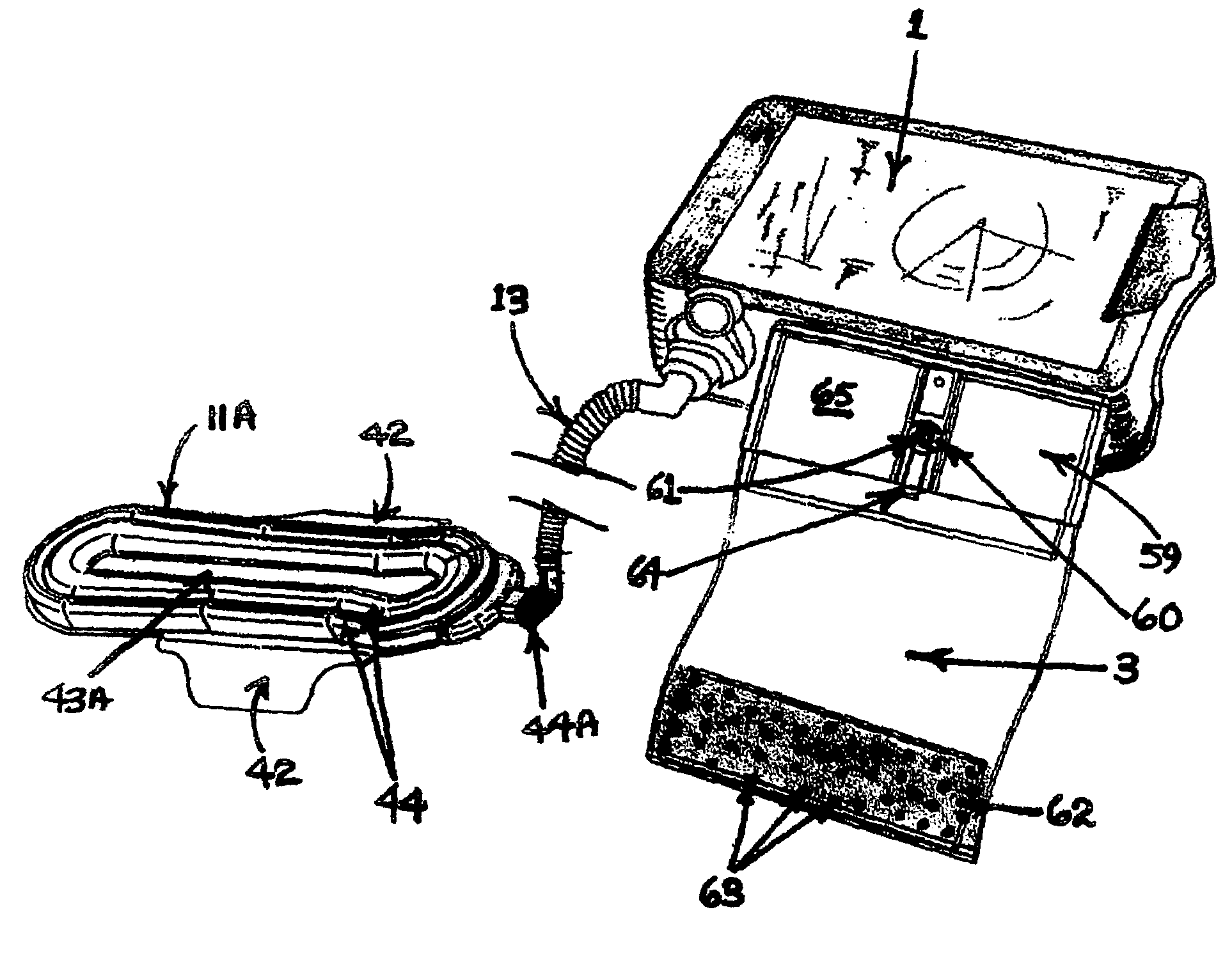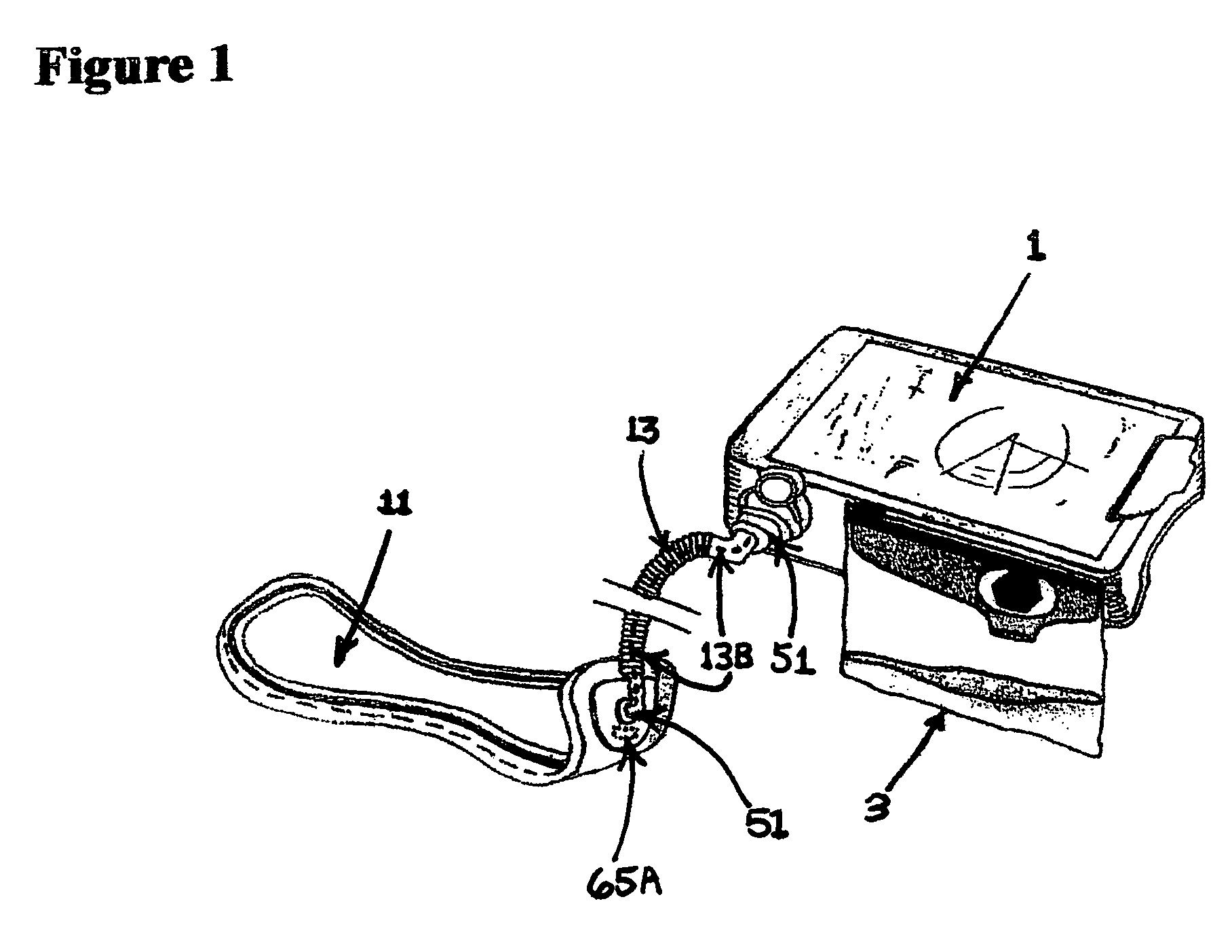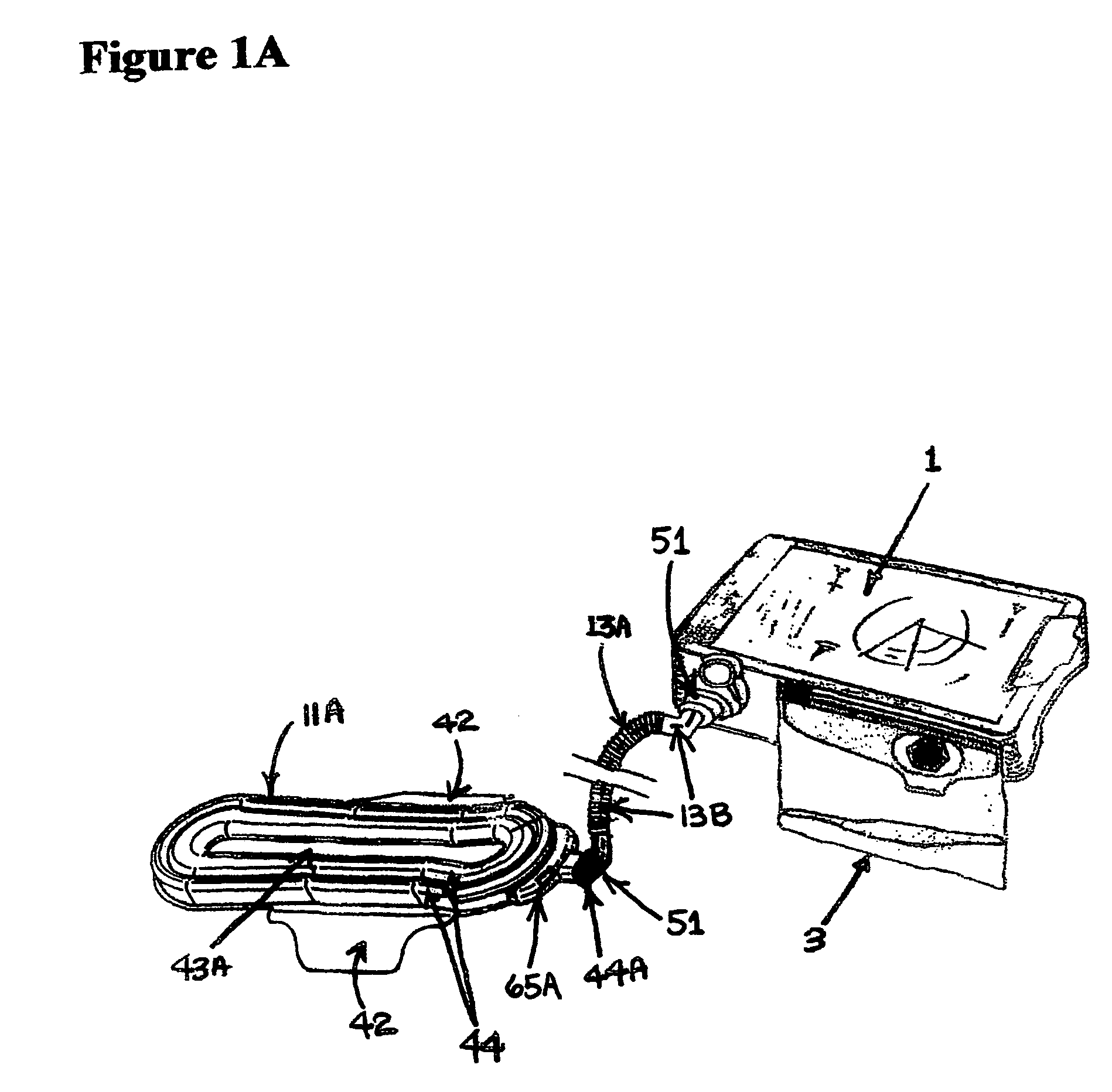Automatic self cleaning bladder relief with battery pad system
a self-cleaning, battery-powered technology, applied in the field of automatic self-cleaning bladder relief with battery-powered bladder relief system, can solve the problems of inability to accept bladder relief systems for incontinent adults, inability to use vacuum pumps for drainage, and inability to use pads. to remove odors
- Summary
- Abstract
- Description
- Claims
- Application Information
AI Technical Summary
Benefits of technology
Problems solved by technology
Method used
Image
Examples
Embodiment Construction
I. Preferred Embodiments
[0040]With reference now to the drawings, and in particular to FIGS. 1-9 thereof, a new and novel apparatus for an automatic bladder relief system embodying the principles and concepts of the present invention and generally designated collectively comprising two main components in the female user embodiment by the reference numeral 1 and 11 in FIG. 1, and in the male user embodiment by the reference numeral 1 and 57 in FIG. 4.
List and Description of:
General Description of Reference Numerals in the Description and Drawings
[0041]Any actual dimensions listed are those of the preferred embodiment. Actual dimensions or exact hardware details and means may vary in a final product or most preferred embodiment and should be considered means for so as not to narrow the claims of the patent.[0042](1) Suction Control Unit[0043](1A) Air Pump[0044](2) Suction Vacuum Pump[0045](3) Urine Collection Bag[0046](5) DC Motor[0047](7) Rechargeable Battery Pack[0048](9) Recharge C...
PUM
 Login to View More
Login to View More Abstract
Description
Claims
Application Information
 Login to View More
Login to View More - R&D
- Intellectual Property
- Life Sciences
- Materials
- Tech Scout
- Unparalleled Data Quality
- Higher Quality Content
- 60% Fewer Hallucinations
Browse by: Latest US Patents, China's latest patents, Technical Efficacy Thesaurus, Application Domain, Technology Topic, Popular Technical Reports.
© 2025 PatSnap. All rights reserved.Legal|Privacy policy|Modern Slavery Act Transparency Statement|Sitemap|About US| Contact US: help@patsnap.com



